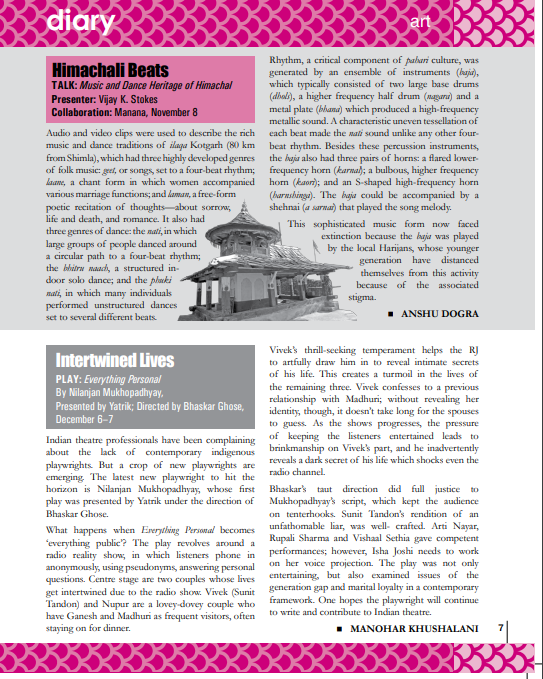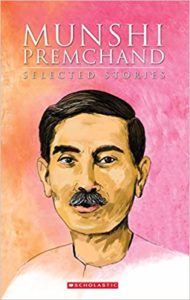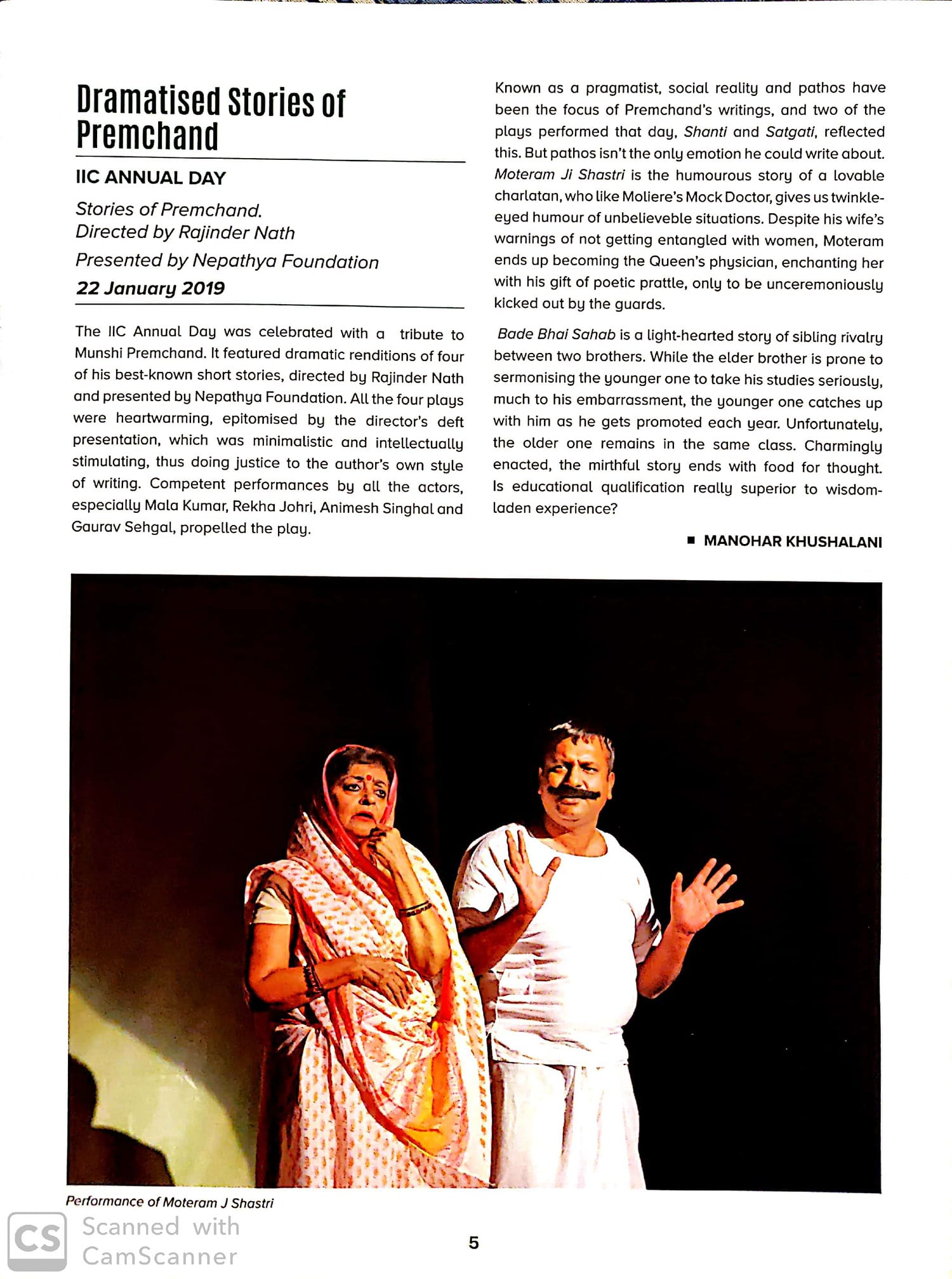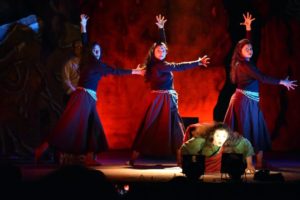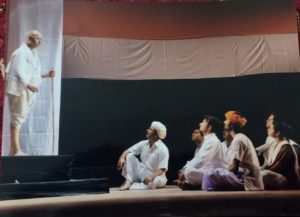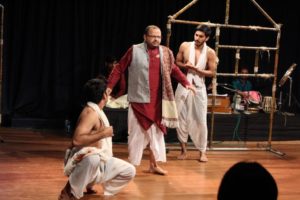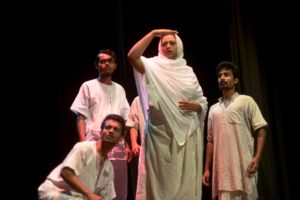Everything Personal – a taut and gripping play | Manohar Khushalani
A Review by Prof. Manohar Khushalani
Published earlier as ‘Intertwined Lives’ in IIC Diary Nov-Dec 2010 Issue
Indian theatre professionals have been complaining about lack of contemporary indigenous playwrights. But a crop of new playwrights is emerging. Abhishek Bhattacharya’s ‘Nothing Will Happen Between Us’ and Anushka Ravi Shankar’s ‘Phoenix’ come to one’s mind. The latest new playwright to hit the horizon is Nilanjan Mukhopadhyay, a seasoned journalist; whose first play, ‘Everything Personal’, was presented by Yatrik under the direction of Bhaskar Ghosh. Incidentally, all the three plays were produced by the India International Center, though the first two were presented by Ruchika Theatre Group at IIC earlier.
Mukhopadhyay’s precisely written script is about what happens when Everything Personal leaks into the public domain. The play revolves around a radio reality show. The show has listeners phoning in, and, using made-up names, answering very personal questions, hopefully truthfully – since they are promised by the Radio Channel that their identities will be kept concealed. The story revolves around two couples whose lives get intertwined due to the radio show. Vivek (Sunit Tandon) and Nupur (Rupali Sharma) are a lovey-dovey couple who have Ganesh, (Vishaal Sethia) and Madhuri (Isha Joshi) as frequent visitors, often coming over for dinner. Vivek is intrigued by the show and is uncontrollably attracted to it with his thrill-seeking temperament. As Vivek is artfully drawn in by the Radio Jockey (Aarti Nayar) to reveal intimate secrets of his life, it creates a turmoil in the lives of the remaining three. For one, Vivek had a previous relationship with Madhuri, which he confessed about on the radio show, without revealing her identity – though, it didn’t take long for the spouses to guess. As the shows progressed, the pressure of keeping the listeners entertained led to unprecedented brinkmanship on Vivek’s part. So much so, that he inadvertently revealed a deep dark secret of his life which shocked even the radio channel.
Bhaskar’s taught direction did full justice to Mukhopadhyay’s script which kept the audience on tenterhooks. Sunit Tandon’s rendition of an unfathomable liar, who keeps others guessing as to whether he was lying or not, was well crafted. Arti Nayar, Rupali Sharma and Vishaal Sethia gave competent performances. Sinia Dugal and Ramesh Thakur as Vivek’s parents provided the appropriate support, however, Isha Joshi needs to work on her voice projection. The play was not just entertaining, but it also examined some issues regarding the high expectations of the younger generation and marital loyalty in a contemporary framework. One hopes that the Playwright will continue to write and contribute to the Indian theatre scene.
Published earlier as ‘Intertwined Lives’ in IIC Diary Nov-Dec 2010 Issue
